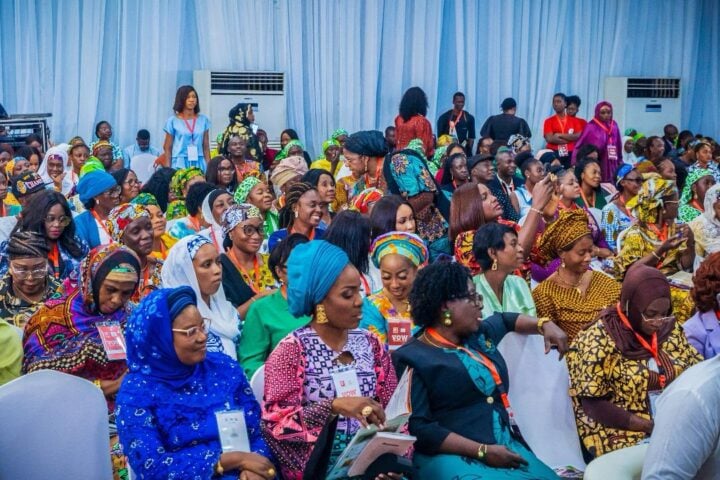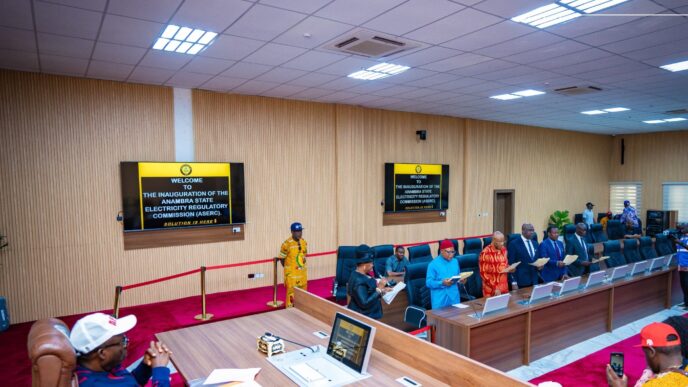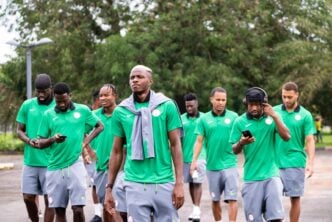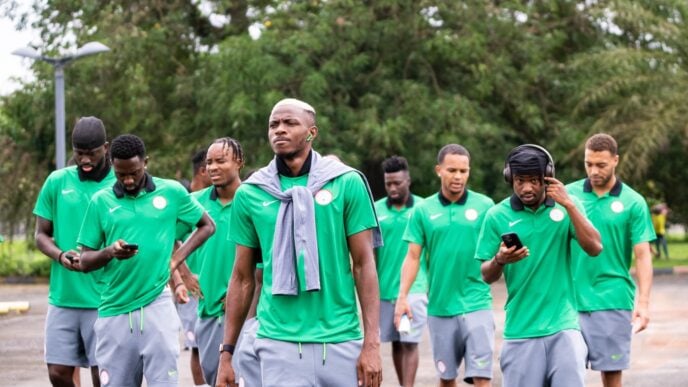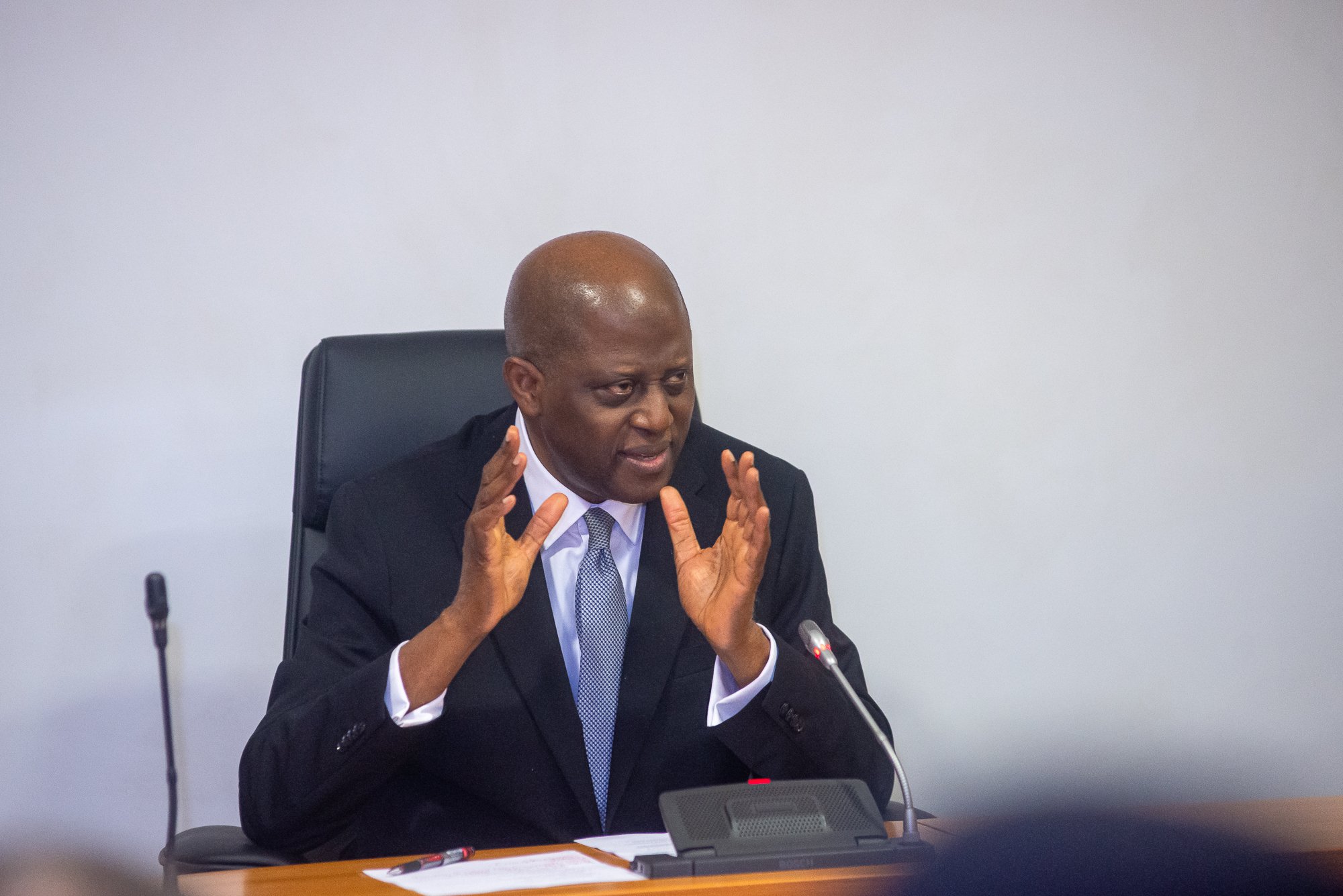Voice of women conference | File photo
For years, the world has been enchanted by the story of the lone entrepreneur, the fearless dreamer who battles the odds, builds an empire, and changes everything through sheer willpower. It’s a thrilling myth. But for millions of women across Africa, it feels like a story written for someone else. Their reality is messier, quieter, and infinitely tougher, full of invisible barriers that no amount of grit alone can overcome.
Banks demand collateral they don’t have. Informal business structures hold back their ambitions. And a thousand unspoken rules whisper that women should dream modestly, stay safe, and not make too much noise. Yet, against this backdrop, something extraordinary is stirring in Imo State, Nigeria, a quiet revolution that’s rewriting the rules of what entrepreneurship can look like.
It’s called *OKOBI (the One Kindred, One Business Initiative)* and at its heart is a radical but deeply African idea: that _trust itself_ can be capital.
The spirit behind OKOBI comes from an ancient Igbo truth — _Umunna bu ike_, “the kindred is strength.” For generations, African communities have survived and thrived through collective care. Neighbours shared what little they had. Families pooled resources to educate a child or build a home. Trust was the original currency , strong but invisible, valuable yet unrecognized. OKOBI takes that age-old social glue and gives it structure. It formalizes what communities have always done instinctively: come together to build something bigger than themselves.
Advertisement
An OKOBI business begins, fittingly, with people, three or more trusted collaborators who share both a dream and a sense of responsibility to each other. Together, they move through a deliberate process that grounds their ambition in discipline. They start by studying their market, identifying a real need they can meet.
They agree on roles, ownership, and how to resolve conflict before money even enters the equation. Then they formalize; registering with the government, earning legal recognition, and stepping confidently into the formal economy.
Each stage strengthens the foundation. Each layer of structure makes the enterprise harder to break. In the end, OKOBI doesn’t just create businesses, it builds systems that can outlast disagreement, weather economic shocks, and continue even when founders move on.
Advertisement
For women, that’s a quiet revolution in itself. OKOBI validates what many have always known deep down: collaboration isn’t a crutch, it’s a superpower. Women are already masters of collective resilience. They form cooperatives, saving circles, support networks, and faith-based associations. OKOBI gives that instinct a modern, corporate backbone. It allows women to transform social trust into tangible value bypassing one of the most stubborn barriers in business: the _collateral ceiling_.
Instead of waiting for permission, they create their own creditworthiness. They build enterprises rooted not in privilege, but in shared accountability. And in doing so, they turn every small act of cooperation into an engine of economic freedom.
The model also resonates in the digital world. Picture groups of female tech founders forming structured collectives coding together, building apps, running e-commerce ventures with clear governance and equity agreements. These are exactly the kinds of signals investors seek when deciding whom to trust. OKOBI gives them the language and legitimacy to scale those dreams.
For corporations, OKOBI offers a different kind of partnership. Instead of charity, there’s shared value. Companies can now source products, materials, or services from OKOBI collectives turning beneficiaries into business partners. It’s a more honest kind of impact: the community earns, the company saves, and both sides grow stronger.
Advertisement
That’s how wealth stops leaking out of local economies and starts circulating where it’s needed most.
Already, the results in Imo State are striking. Over 450 enterprises launched. More than 20,000 jobs created. But the real story is just beginning. Across Africa, echoes of OKOBI can already be felt in _Ubuntu_ in Southern Africa, in _Harambee_ in the East. Each embodies the same truth: we rise higher when we rise together.
The world has long looked to Africa for its natural resources; perhaps now it should look to its social wisdom. The next great innovation in business might not come from Silicon Valley, but from a small community in Owerri where people are proving that trust, when formalized and protected, can build empires of its own.
In many ways, OKOBI reflects the spirit of the Female Founders Tribe — *built by women, backed by a tribe* and sustained by shared purpose. It is a reminder that when women come together, they do more than build ventures; they build legacies.
Advertisement
At the *Female Founders Tribe*, we see OKOBI as more than a policy ; it’s a promise. A promise that women, united by purpose and backed by structure, can build enterprises that endure beyond any single lifetime.
The future of business won’t be powered by individualism. It will be powered by connection, by kindreds, by communities, by collectives bold enough to believe that their shared strength is enough.
Advertisement
And that future is vibrant, inclusive, and unmistakably African has already begun.
Adedeji is the Co-Founder of the Female Founders Tribe, a growing community dedicated to advancing women’s entrepreneurship and leadership across Africa. She writes from Ilorin and can be reached via [email protected] and +234 814 022 3496
Advertisement
Views expressed by contributors are strictly personal and not of TheCable.

